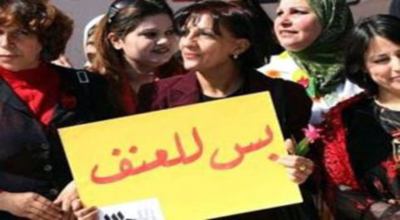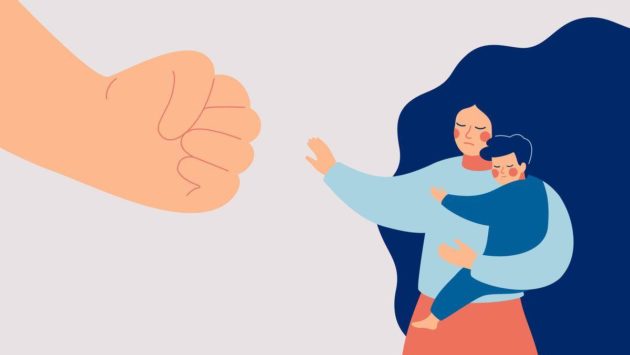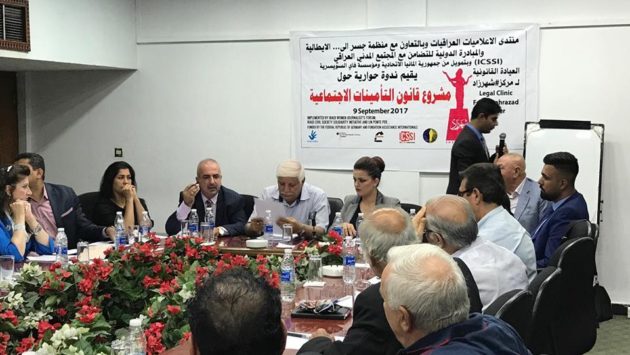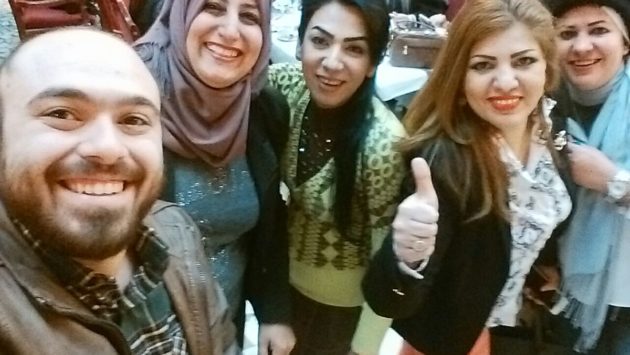Kurdistan’s Battered Women: Out of Shelters, Into Danger and Honour Killings!
niqash | Alaa Latif | Sulaymaniyah
When a woman leaves a shelter for battered women in Iraqi Kurdistan, her family often has to sign a pledge guaranteeing the woman’s safety. This is because of the prevalence of honour killings in the region. But apparently the pledges, signed before a judge, are not working. So women’s rights activists are demanding a change in the law.
Rules about the shelters for abused women in the northern province of Iraqi Kurdistan say that any woman who has sought shelter there should never go back to her family unless the relatives sign a pledge, before a judge, guaranteeing her ongoing safety.
But somehow these pledges and rules do not seem to be making any difference, local women’s rights activists say. Women who seek shelter because they are in danger are going back to their families and facing that danger once again.
Police statements in Erbil show examples of this. For example, between the end of February and mid-March this year two women were killed by their families. One was murdered three days after she left the shelter and the other two days after she returned home. According to the information gathered by the government-run General Directorate to Combat Violence Against Women in Sulaymaniyah, 218 women have sought help from them since the beginning of this year up until November 15. But only 25 people actually remained in the shelter, and among them, nine were children. This indicates that most women do leave the shelter again and return home.
“During the last few years we have been giving priority to the desires of the women to leave the shelter and return home,” Korda Omar, who heads the General Directorate to Combat Violence Against Women, told NIQASH. “However since a number of the women who left the shelters have been killed, investigators into domestic violence cases now have to prove that the woman will not be harmed if she goes home.”
“The pledge families have to make is not enough to stop them killing their daughters,” Omar admitted, “especially if it is a case of honour.”
“For some families, the honour of their women is the most important thing,” adds Zilmo Abdul-Qader, who heads the Directorate’s Erbil branch. “They don’t care if their sons have to spend 20 years in prison as the result of an honour killing.”
Abdul-Qader speaks from experience. She had recently seen a family sign a pledge to protect their daughter in front of a judge but just one day after the girl left the shelter, she was dead. The court issued sentences of between 15 and 20 years against four members of the family who had murdered the girl. “But for them, only honour mattered,” Abdul-Qader says.
As a result of what they see as the failure of the pledge system, activists like Abdul-Qader and Omar have submitted a proposal to the Iraqi Kurdish Parliament that pledges should not be the only means of ensuring women’s safety. They want domestic violence laws amended so that family property can also be seized in cases like this. They are using next week’s International Day for the Elimination of Violence against Women, on November 25, as a way to highlight the need for a law change.
“We can never guarantee the safety of these women completely but when there are stricter laws and harsher punishments, the chances are that those planning to kill their female relatives will find it more difficult,” Omar suggests.
Staff at the General Directorate to Combat Violence Against Women have expressed a desire to follow up on the cases they see. But often they are unable to because of family situations. Family members won’t let the staff visit the endangered women and often they won’t even let them speak on the phone, Omar notes.
“It’s become increasingly clear that the pledge system isn’t working,” says Bihar Munther, the coordinator of a local network of women’s rights groups. “And if the women are not protected against violence, they may also die in other ways – suicide for instance,” she says, referring to a recent case of two sisters found drowned five months after they returned to their families. Their uncle had signed a pledge guaranteeing their safety.
The cause of death remains uncertain. But as Munther says, “they came from very poor conditions and they went back to very poor conditions. One way or another that led to their deaths in these obscure circumstances.”





